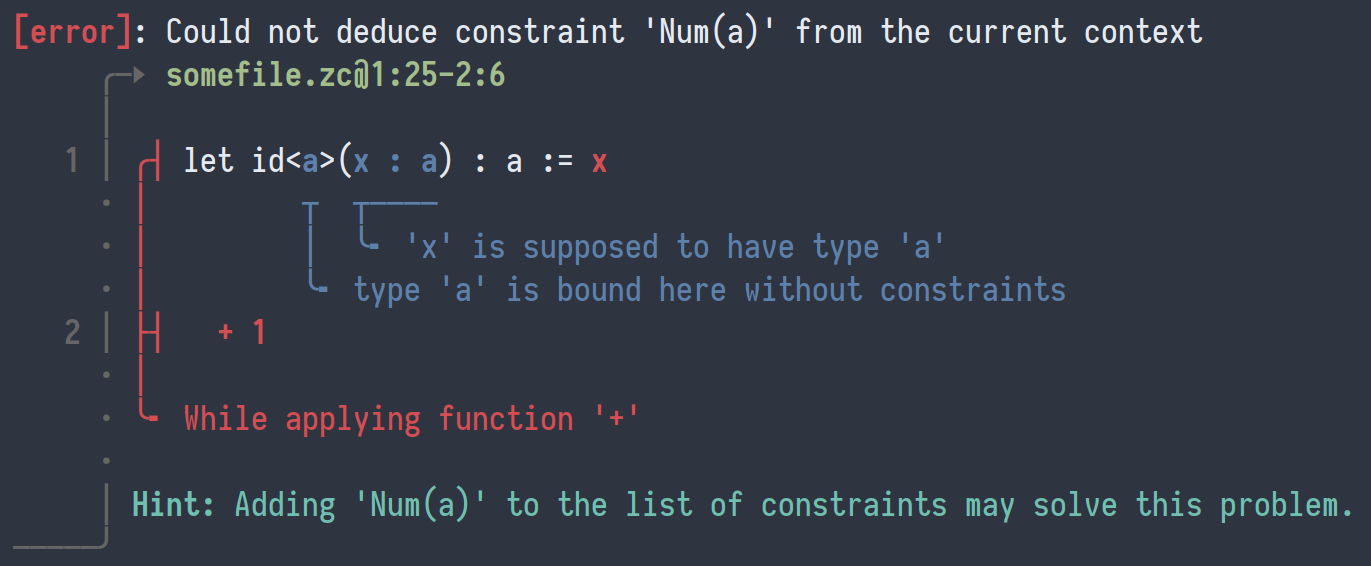I'm Ghilain, nice to meet you! Well obviously we cannot talk here (unfortunately?). Let me just summarize who I am.
So, I'm just a young guy, really interested in the programming language theory and everything it comes with (parsers, type systems, etc). I got into it at around 2018, when I started thinking about creating my own programming language.
I further evolved into making more unfinished programming languages! 🎉
-
Back in 2018, I implemented a small assembly language-like programming language running on a Virtual Machine (much like Java). It was originally named “#*”, but was later renamed into “Snow*”. The repository is available here.
At that time I didn't know C++ really well, but I think I ended up with something not quite bad.
-
After upgrading the language for about 2 months, I decided to restart the project from scratch, into another direction. That's where the last Snow* got to life. It was still C++, but much less crappy than before. It used ANTLR for the parsing, and LLVM for the code generation and executable creation. The code is available here.
-
I then stopped Snow*, especially from lack of motivation...and started a new programming language about 4 months after. It was named “Blob”, and was meant to guarantee type- and data-safety through the use of complex types (see “Quantitative Type Theory” on google). It was the first time I used Haskell, because someone recommended it to me. I ended up enjoying my time with this new programming language I didn't know.
The language (Blob) got to a stage where I dropped some features, even before trying to implement them (like the QTT), because of how complicated things would become. I later renamed the language “Nihil”, in reference to the fact that's there nothing usable in this programming language.
The repository (this one) is currently the holder of the most ⭐ on my profile!
-
My new project, Zilch is mostly a rework of Nihil. Things did not end well for it (the code is still available here). To keep things short:
- my motivation decreased quite a lot
- I worked on another project
- the code written was undocumented and not necessarily easy to maintain if ever I had to
- I worked alone
- nobody had interest anymore in it.
So I restarted everything, again... I am now creating another monstrosity: a low-level functional programming language inspired by Haskell and Rust, featuring type- and data-safety through linear types and such, and compiling to N*, a low-level typed assembly language. I'm also trying to formalize the language as can be seen here.
I also have some other side projects, like my custom virtual CPU or my Haskell assembly DSL. But there is even more to see here! (where in fact most of the projects have been left behind)
Just a little bit of statistics:
Even though I waste most of my time in front of my screen, on my keyboard, I also enjoy eating, tinkering (I like to make rings for no reason), and playing games like BeamNG.Drive or World of Tanks. 🎮
The "place" you belong to is not necessarily a physical place. Some people may find that they feel well on Discord in some specific servers, others may find that living close to their close friends is what makes them enjoy life.
But I believe that you should not have to find this "place". This place should first be your heart. You are the only one able to love you as much as you may want to. Loving yourself is not about loving every single part of you, every little part that makes you what you are. It instead is about knowing that you are not flawless, and accepting those flaws, accepting those as parts of yourself. Self-hatred is not what you should feel. Self-hatred is some kind of disease, but one you cannot cure easily (if even at all). Just learn to love yourself (or at least try), instead of relying on "how you always felt like" and giving you blame for it. This is more important than everything else.


